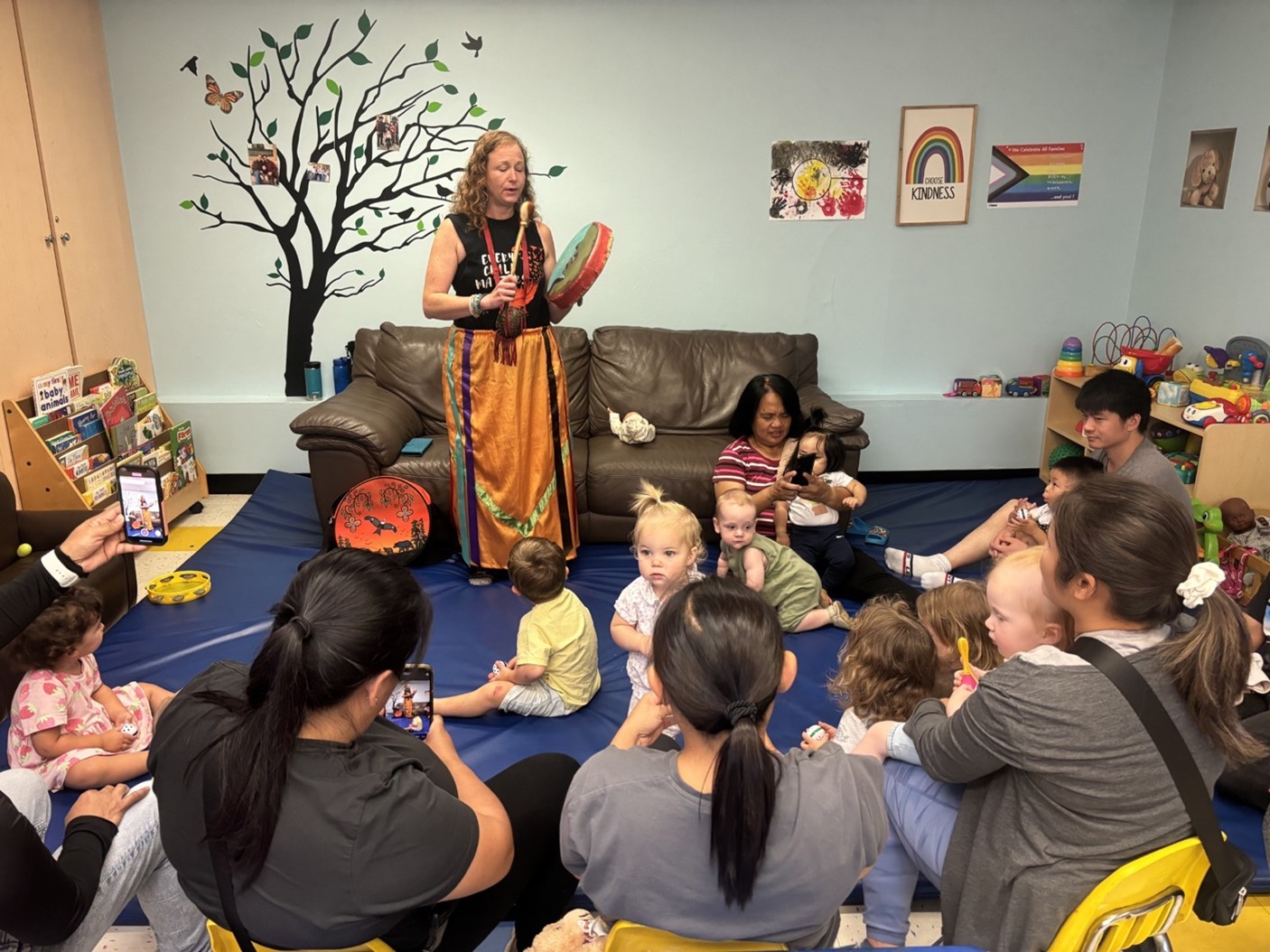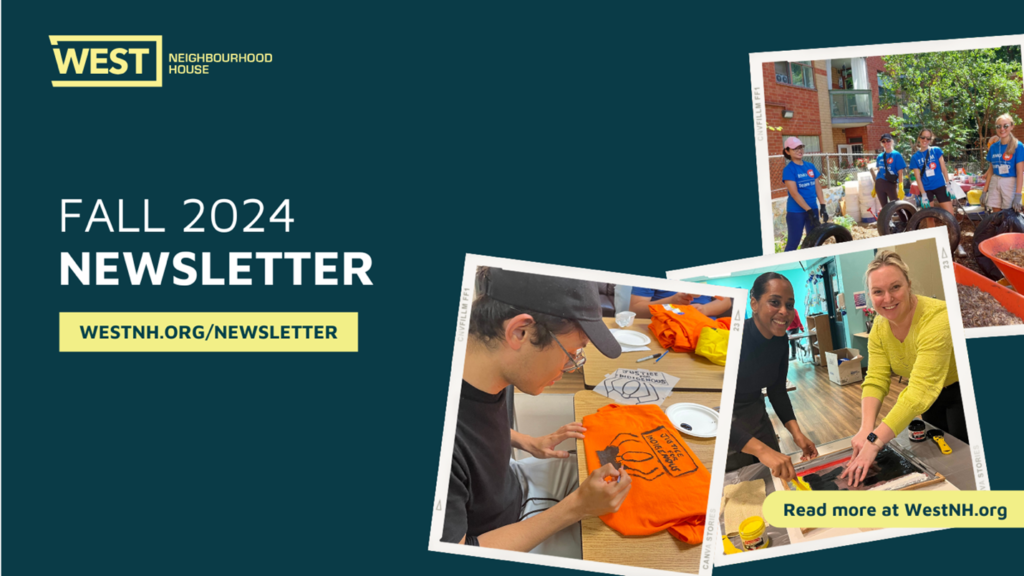Dear Friends of the House,
At West Neighbourhood House, we are committed to breaking down systemic barriers that lead to injustice and inequities in our society. In this newsletter, we share inspiring stories and impactful initiatives that demonstrate our dedication to advocating for and creating equitable access to opportunities. Whether it’s through our community outreach programs, workshops, or support services, we strive to empower individuals and groups facing social, economic, and political disadvantages. Join us in our journey to make a difference and create a more just and equitable society for all.
On September 30th, we commemorated the National Day for Truth and Reconciliation, honouring the legacy of residential school survivors and remembering those who did not return, their families, and the community.
Our meaningful work is driven by strong relationships with our partners and community members. We are pleased to update you on our work with the social medicine housing initiative at 90 Dunn in Parkdale, which provides stable housing and essential medical care to 51 previously unhoused individuals.
This summer, we welcomed volunteers through the United Way’s Day of Caring and BMO Day of Impact. Their time, effort, and expertise greatly supported our program participants, and we look forward to building on these relationships.
We are committed to continually improving our programs to better serve the community. We have received the results of our arts programming survey and will soon provide an update on the future of arts programming at the House.
Additionally, our recent Summer Camp provided educational and recreational activities for children aged 6-12 throughout the summer and offered subsidies to families.
Read more about our recent activities and initiatives at the House.
National Day for Truth and Reconciliation, a Day Dedicated to Reflection and Acknowledgment
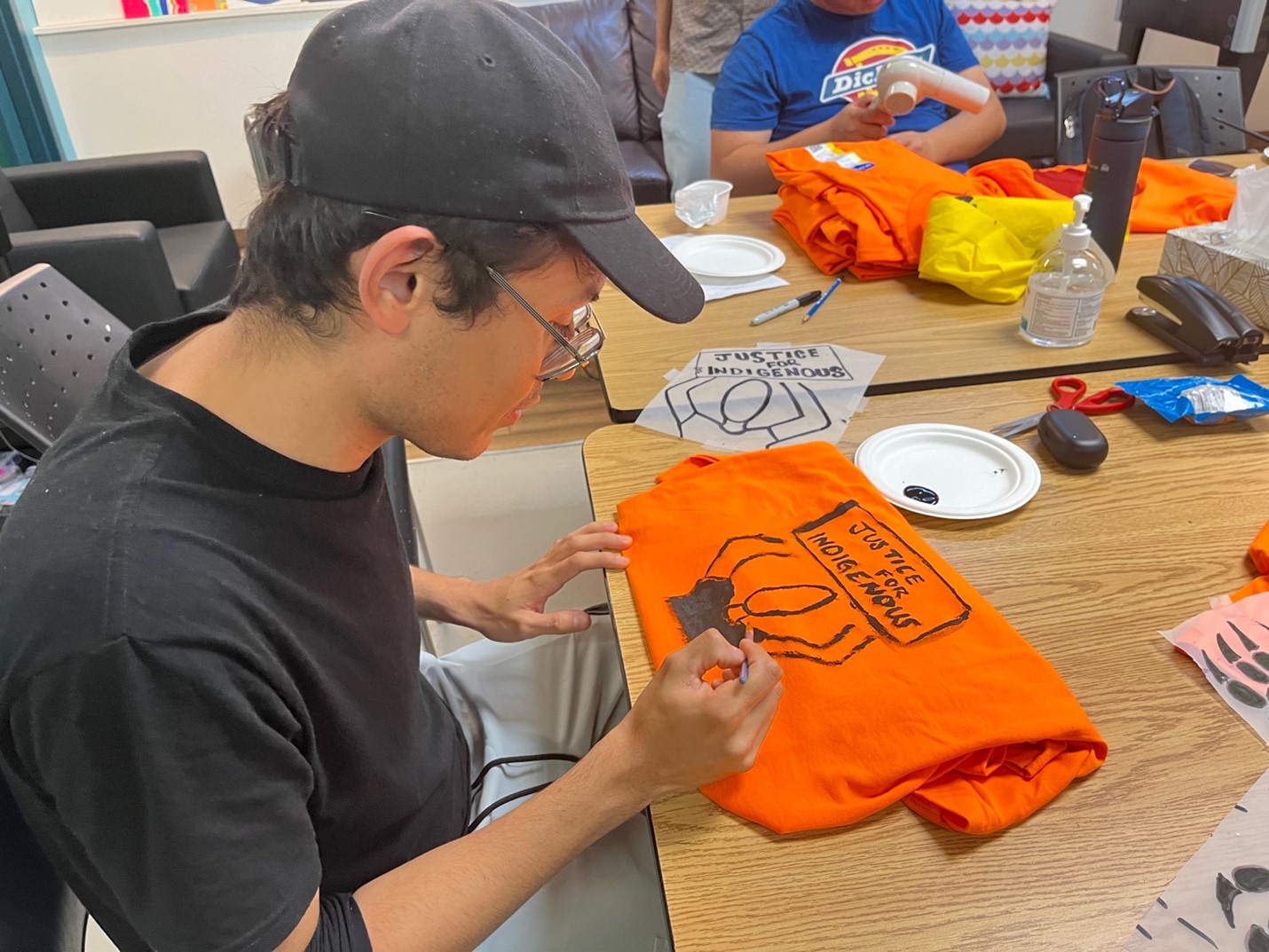
On September 30th, the House commemorated the National Day for Truth and Reconciliation, honouring the memory of children who never returned home and survivors of residential schools, along with their families and communities.
The House is committed to challenging inequity and injustice, and to creating equitable access to opportunities for all individuals and groups facing marginalization. Our organization acknowledges its past wrongs and strives to forge a path towards reconciliation through meaningful dialogue and engagement with the Indigenous community.
Throughout September, the House organized various activities leading up to the National Day for Truth and Reconciliation. These events aimed to educate staff and the public about the legacy of residential schools and the systemic discrimination experienced by the Indigenous community in Canada.
We believe that understanding the history and legacy of residential schools, as well as the painful and traumatic history of Indigenous peoples in Canada, is critical for the path towards truth and reconciliation.
During our staff meeting, employees participated in an in-group learning exercise, building a timeline of events from pre-European colonization to the present day. This exercise was designed to increase our awareness and knowledge of our history as it relates to the Indigenous community.
The Newcomer Youth Program created their own unique orange t-shirts. Indigenous and non-Indigenous peoples wear orange on September 30th to honour and reflect on the story of Phyllis Webstad, who had her orange shirt, a gift from her grandmother, taken away on her first day of residential school and never returned. Phyllis Webstad is a Northern Secwepemc author and activist from the Stswecem’c Xgat’tem First Nation, and the creator of Orange Shirt Day.
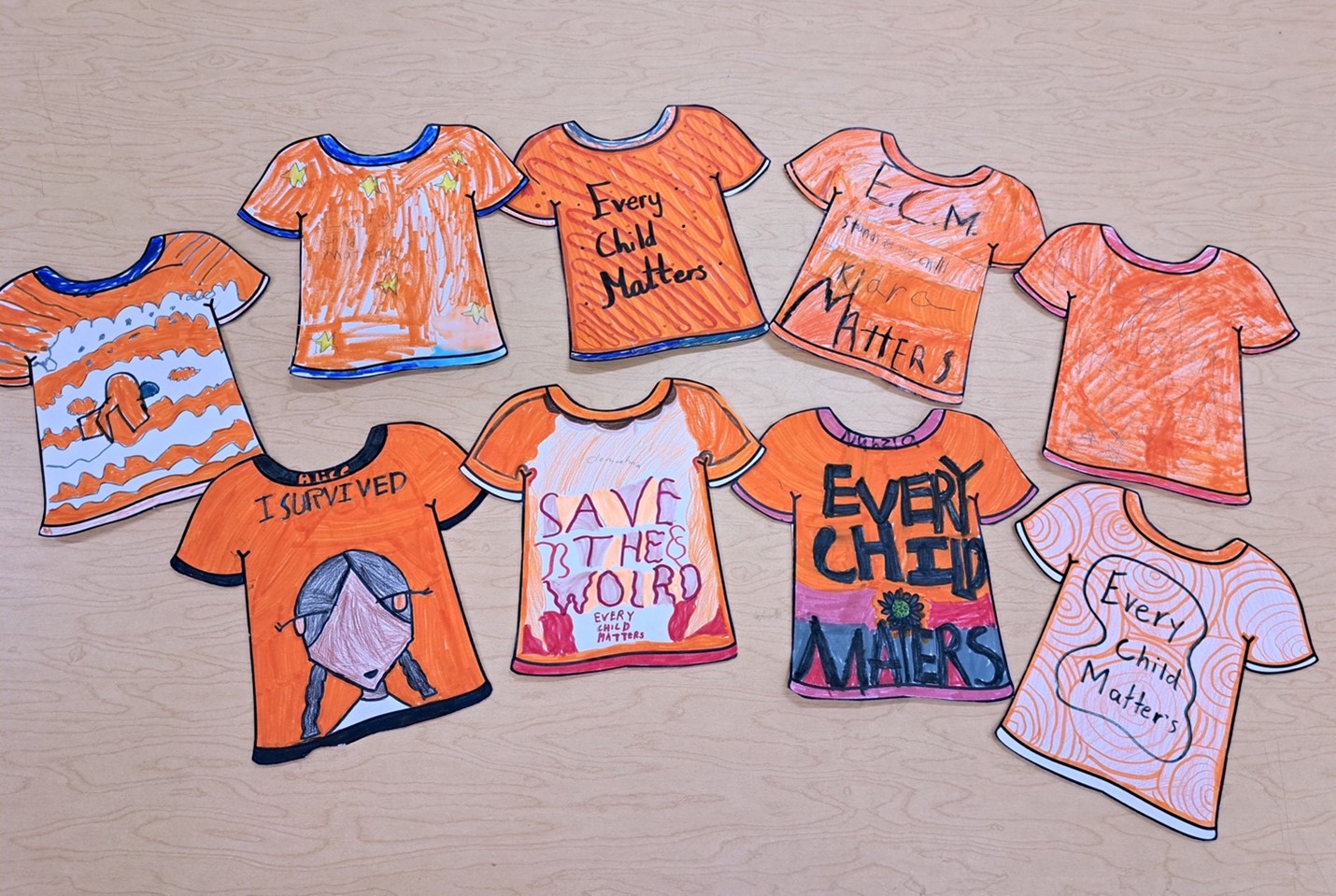
In September, the EarlyON drop-in hosted a series of engaging events for children aged 0 to 6 and their parents and guardians. These activities, including storytelling, aimed to foster a deeper understanding and appreciation of the Indigenous community.
The program welcomed Indigenous artist and activist Rosalind Grace Rundle, who led various activities, including a traditional inter-tribal Hand-Drumming Sharing Circle and performances of her favourite Indigenous folk songs. Rosalind emphasized that song as prayer is a powerful form of medicine needed in our communities and a beautiful way to share culture.
Children, along with their parents and guardians, visited the CAMH Pow Wow, where they enjoyed Indigenous-themed performances. Additionally, the children had the opportunity to create Indigenous-inspired artwork, including pieces with the slogan ‘Every Child Matters’ and a Land Acknowledgement poster, which were displayed in community spaces at the House.
In the After-School programs at Pope Francis Catholic School and Holy Family Catholic School, students created orange t-shirt cut-outs and discussed what the day meant to them individually.
At the Meeting Place drop-in, community member John George returned to speak about the origins of Orange Shirt Day and shared his personal experiences as a member of the Indigenous community. He also organized a medicine bag activity for members.
On September 30th, staff gathered for an activity centered around the book ‘21 Things You Did Not Know about the Indian Act’ by Indigenous writer Bob Joseph. They watched an interview with the author and then met in small groups to discuss their thoughts.
The event also addressed the “94 Calls to Action”, recommendations from the Truth and Reconciliation Commission of Canada’s 2015 report. Staff discussed ways to integrate some of the findings into our programming.
The House remains committed to working with partners and community members to recognize and challenge the existing power structures, processes, and mindsets that contribute to marginalization in our broader society.
Parkdale Artists Create Socially-Engaged Art to Promote Housing Justice
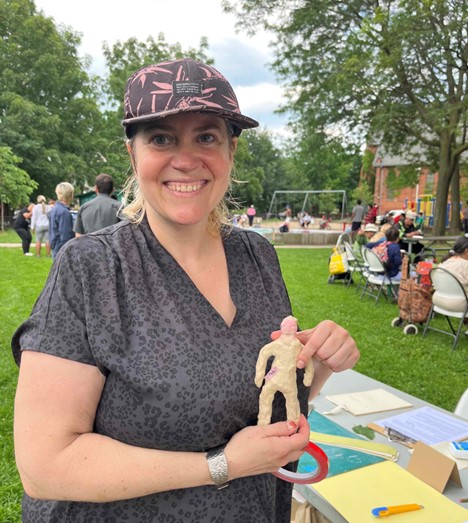
In May 2023, West Neighbourhood House launched a Community Engagement and Education Campaign in Parkdale to develop the community’s understanding and support for the new Social Medicine Initiative at 90 Dunn, in partnership with the University Health Network and United Way Greater Toronto.
90 Dunn is the first social medicine housing project in Canada, providing 51 new homes for unhoused neighbours in Toronto with complex health conditions, prioritizing Black and Indigenous people. Community Learning Circles have facilitated dialogue between local residents, including Indigenous neighbours, and partners working on pathways for Indigenous Housing Access.
This campaign also included the Socially-Engaged Housing Justice Art Request for Proposals, which supported local artists in Parkdale to create socially-engaged art reflecting the theme of how a neighbourhood can work together for housing justice.
Through this process, we have been honoured to collaborate with Jeffery Lyon, an Indigenous Parkdale artist. Together with the Welcome Committee and staff, Jeffery organized silk-screening workshops, creating unique tote bags for the new neighbours at 90 Dunn.
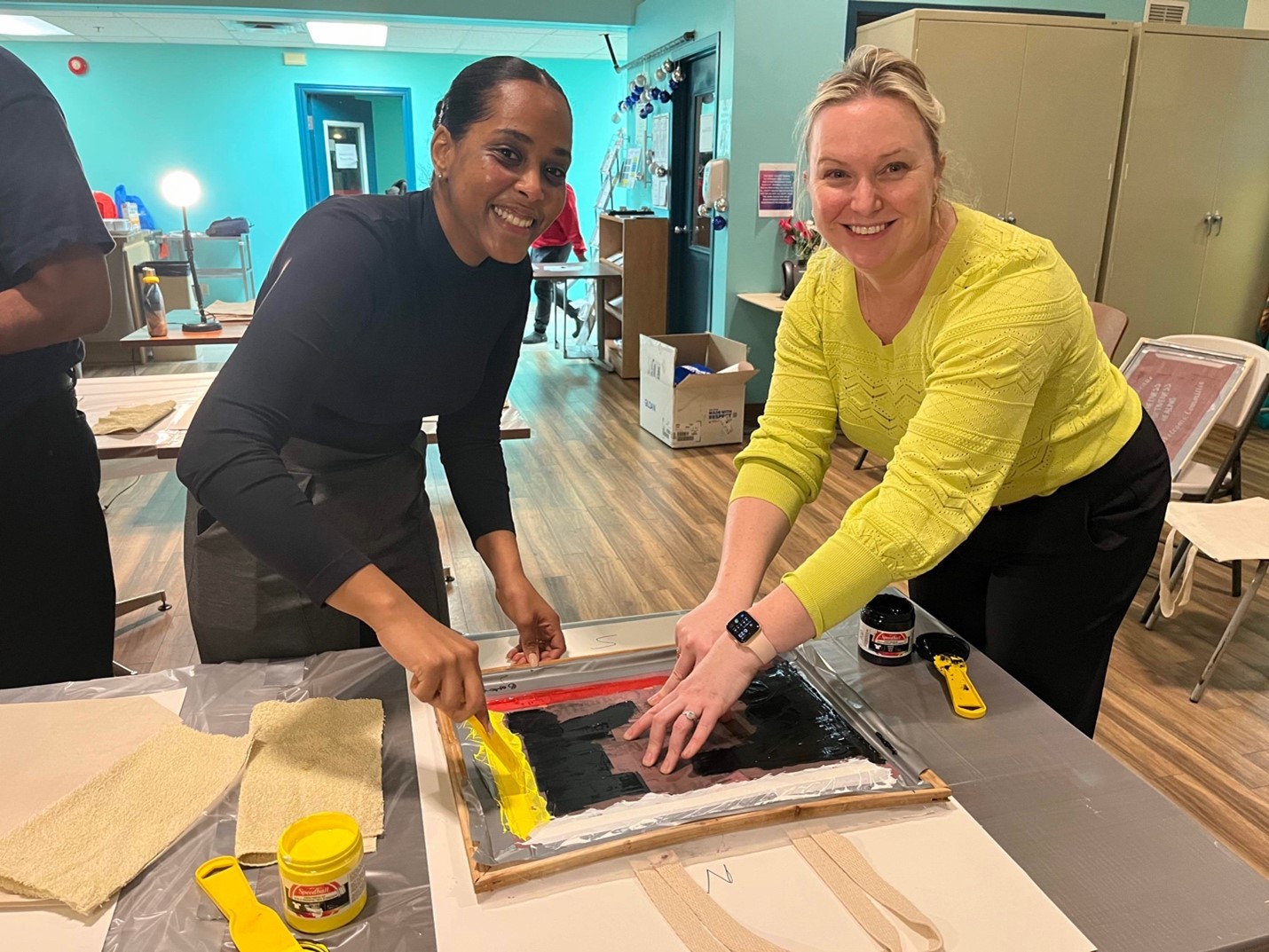
Jeffrey, originally from Northwestern Ontario, has a rich cultural heritage with his mother’s side being Ojibway and his father’s side being Metis and Bear Clan. He currently serves as a Peer Worker with the Niiwiin Wendaanimak (4 Winds) Wellness Program at Parkdale Queen West Community Health Centre. Jeffrey is also actively involved with PARC, The Meeting Place drop-in, and the local food bank, and has been a resident of Parkdale for 15 years.
Reflecting on the purpose and design of the bag, Jeffrey shared, “The bag would be a reminder of where the tenants are. A reminder of their commitment to receiving supportiveness and healing. That, this is a healing journey and a recovery journey. A reminder that they are on the right path and they have the support from the Parkdale community”.
Erin Candela, a multidisciplinary artist who has lived in Parkdale since 2009, hosted a pottery workshop where community members designed and decorated tiny houses. This event not only raised awareness of 90 Dunn but also promoted housing justice in the Parkdale community.
Erin’s deep commitment to creative public engagement prioritizes accessibility, diversity, autonomy, and safety in the spaces she works in. Her practice is deeply intertwined with the positive experiences she has had working and living in the area. Erin believes that creative activities and public symbols of hope and solidarity bring people together and foster a strong community spirit.
Erin expressed, “The power and potential of art drive health, happiness, and build connections across communities. I picture a night time gathering of many people from all walks of life, drinking hot chocolates outside and marveling together over the many tiny flickering houses.”
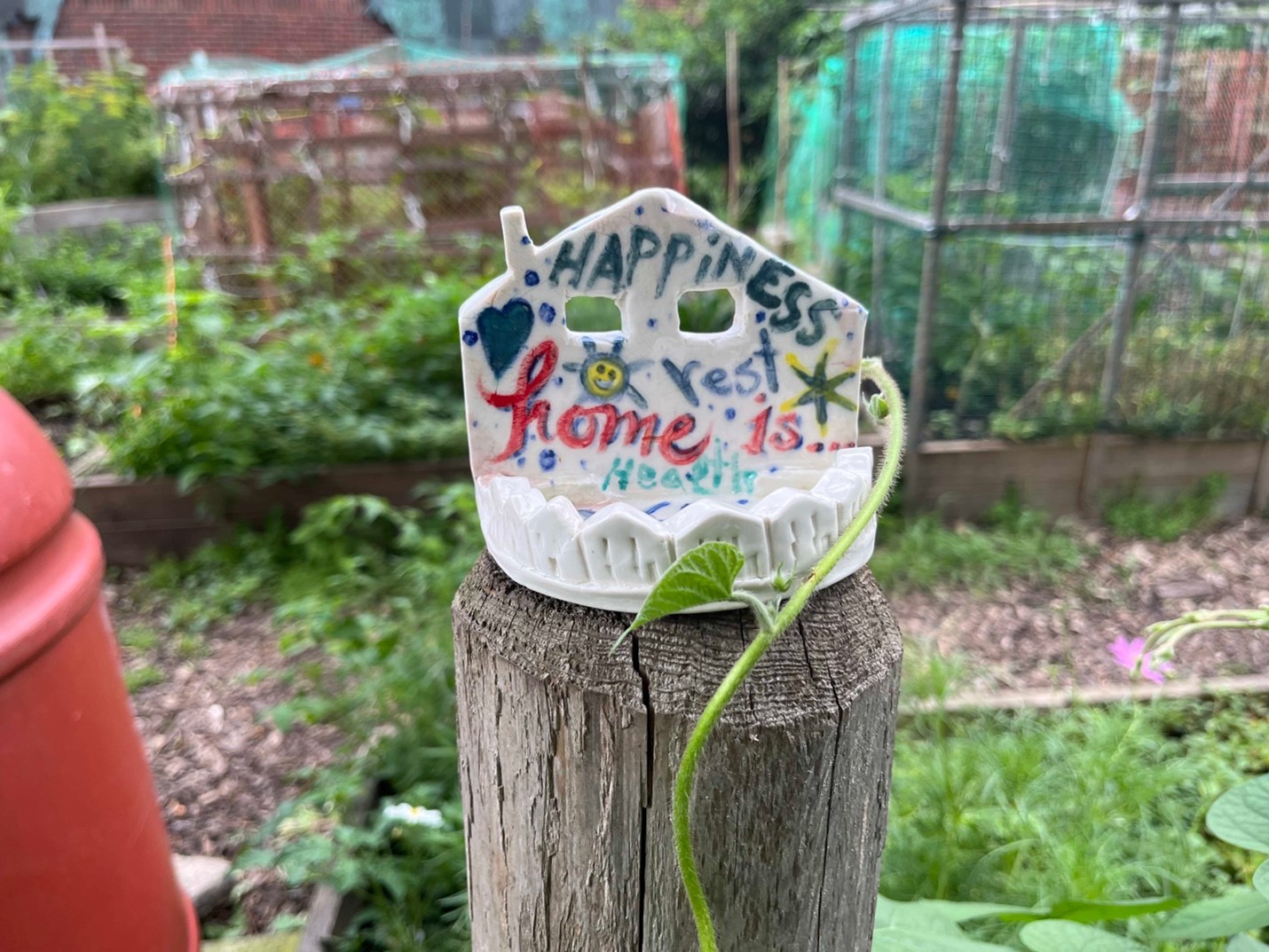
Parth Shah has created a series of community-sourced food recipe posters, displayed in multiple languages, including English. This collaborative art project aims to welcome new neighbours at 90 Dunn by offering them a taste of Parkdale. Parth notes, “Nothing quite connects people to their home like languages and food do.”
Parth, a graphic and typeface designer from India and a graduate of the Inclusive Design program at OCAD University, is passionate about accessibility in art and design. As a member of a visible minority and a neurodivergent artist, Parth is dedicated to promoting social justice, equity, and inclusion through art.
Parth reflects that, “Sharing a family recipe is an act of love and trust. We welcome our new neighbours into the community and let them know that they are cherished here.”
The House extends our gratitude to Jeffrey Lyon, Erin Candela, and Parth Shah for raising awareness of the social medicine housing project at 90 Dunn and promoting housing justice in the community.
Welcoming New Neighbours to 90 Dunn
The Social Medicine Housing project at 90 Dunn (known as Dunn House) has recently opened its doors. In collaboration with United Way Greater Toronto, University Health Network, City of Toronto, housing provider Fred Victor, and our neighbourhood Welcome Committee, the House welcomed 51 new neighbours in Parkdale. These individuals were previously unhoused and experiencing serious and chronic health issues. 90 Dunn will provide stable housing and ensure that the new tenants receive the medical care they need.
The Welcome Committee, together with the Parkdale community, hosted learning circles, workshops, and outreach events to educate the public about the social medicine initiative, which we hope will serve as a model response to homelessness. The committee is also assembling 51 welcome kits, including tote bags and basic household supplies, to help the new neighbours transition into their homes.
For more information about our work with the 90 Dunn Welcome Committee, please visit our website page.
Summer Day Camp promotes active learning and
physical exercise
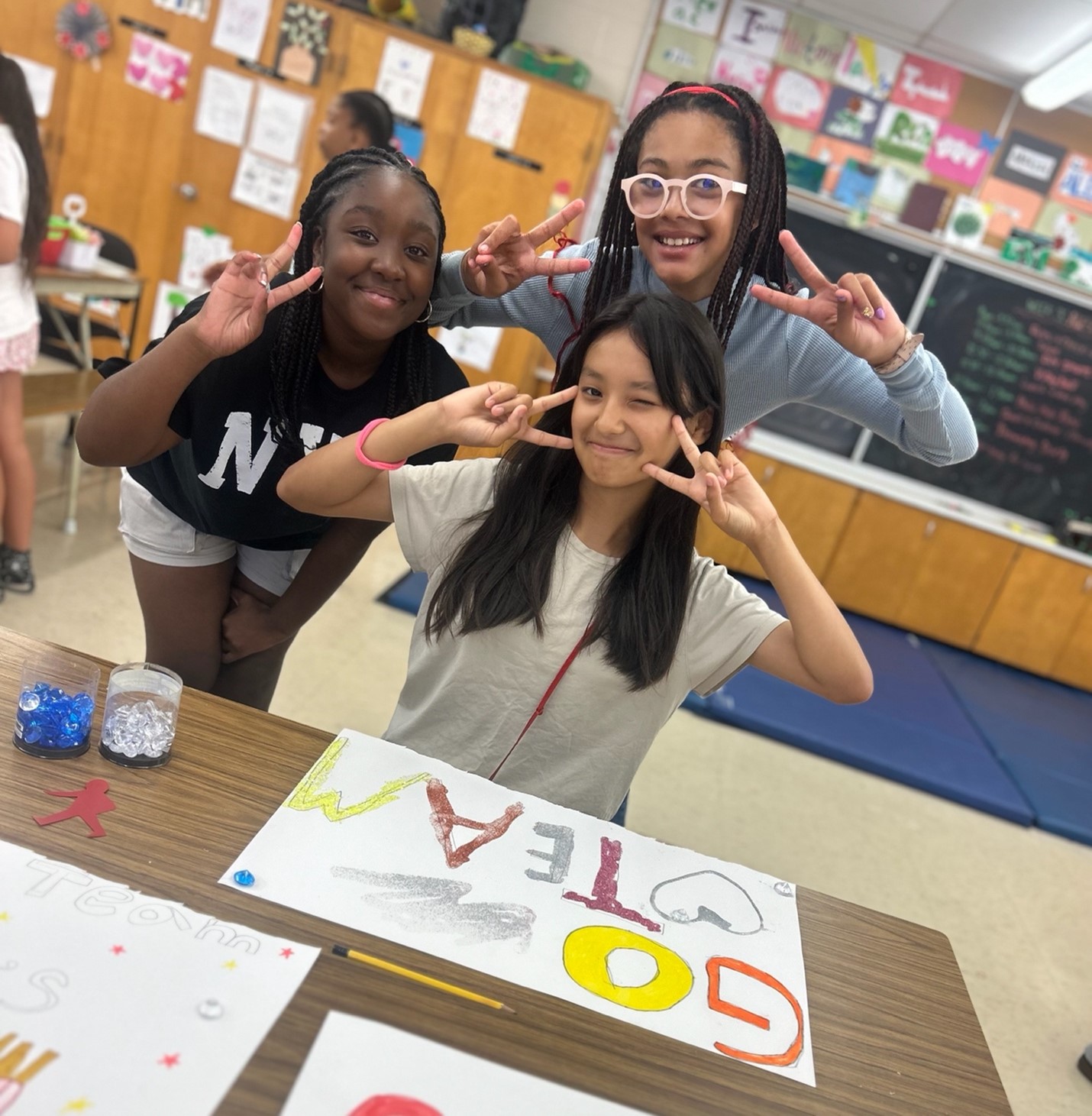
Our Summer Day Camp wrapped up at the end of August, marking another year of unforgettable experiences that benefited not only the 40 children who participated but also their families and the broader community.
The camp provided a safe, engaging, and enriching environment for children aged 6 to 12. This year, the House offered subsidies totaling approximately $5,500 to support 20 families, making it possible for more families to access affordable, full-day care during the summer months – a critical resource for families seeking both high-quality programming and peace of mind.
Hosted at Pope Francis Catholic School, the camp was packed with educational and recreational activities designed to spark creativity, promote physical activity, and strengthen social connections. Each week featured a new theme, allowing children to enjoy hands-on opportunities for learning and exploration through sports, arts and crafts, science, and skill-building games.
This year’s activities were full of creative expression and community-building. Throughout the summer, campers embraced their artistic side with various activities and games. During Art Week, they recreated Vincent Van Gogh’s “Starry Night” with their own unique interpretations, built birdhouses, and explored cultural expression during Cultivating Cultures Week by crafting Indigenous dot paintings and colorful Chinese Paper Dragons. The campers’ culinary talents flourished during MasterChef Week, where they whipped up ‘Apple Monsters’ and personalized pizzas.
To stay active, campers enjoyed visits to nearby parks, splash pads, and pools, alongside regular exercise in the indoor gym. During their Awesome Athletes Week, they embraced the Olympic spirit by tackling an obstacle course and organizing their own World Cup-style soccer tournament.
The camp included excursions to local attractions such as Riverdale Farm, the Royal Ontario Museum, and the Art Gallery of Ontario, which extended the children’s learning beyond the camp, sparking curiosity about the natural world, science, history, and the arts. These outings deepened their connection to the broader community while reinforcing lessons learned at camp.
As the summer concluded, the campers took center stage in their own ‘Got Talent’ show, where they proudly showcased their talents in art, dance, block-balancing, soccer, and singing. The show not only highlighted their skills but also celebrated the friendships and personal growth they experienced throughout the summer.
We are deeply grateful to everyone who made this year’s Summer Day Camp a success. From the families who entrusted us with their children to our dedicated team and community partners, we thank you for making this summer one filled with joy, learning, and lasting memories. Together, we are building a stronger, more connected community.
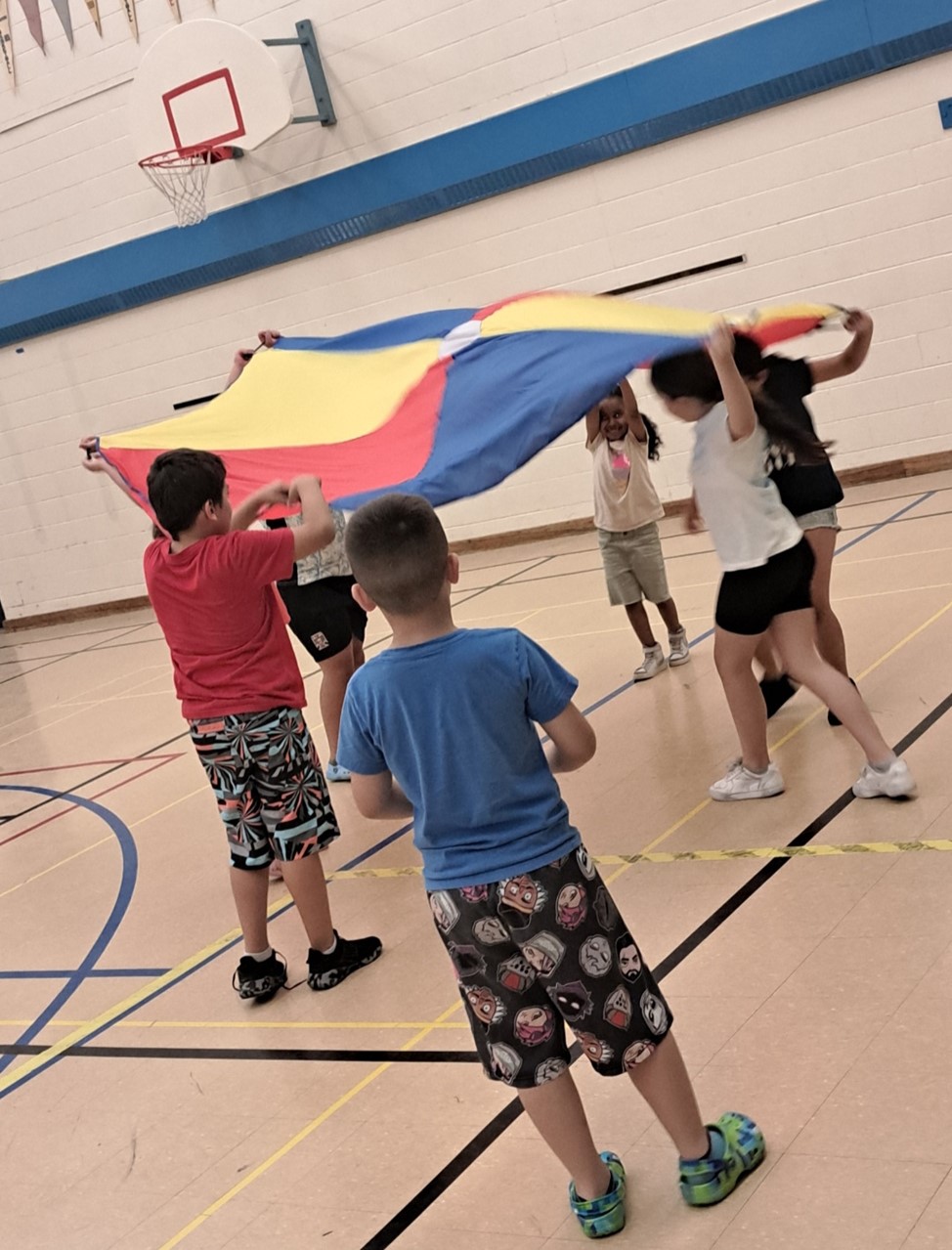
The House Welcomes Volunteers through United Way’s Day of Caring
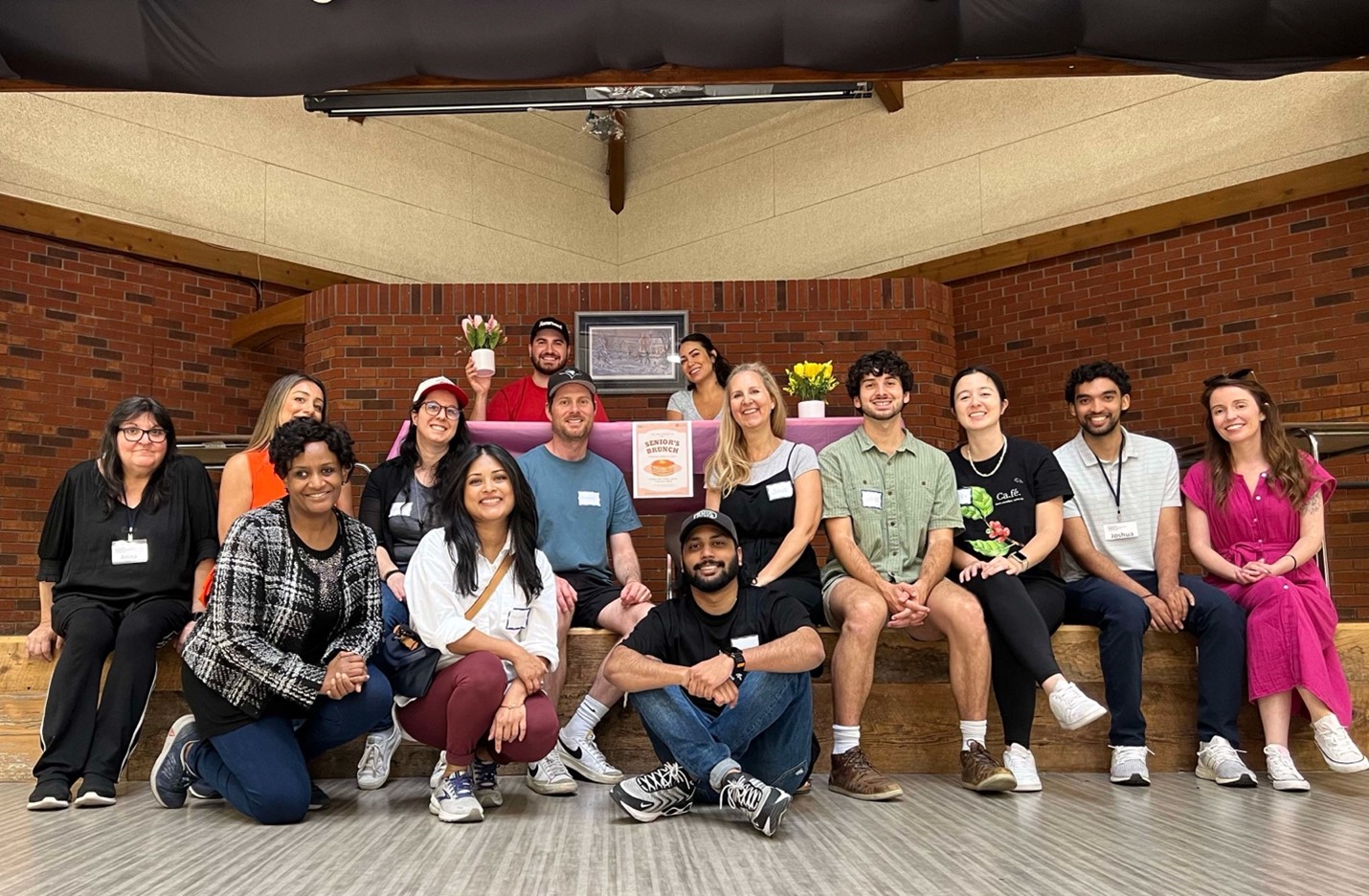
West Neighbourhood House, in partnership with United Way Greater Toronto, hosted several volunteers for the Day of Caring.
Day of Caring brings together local businesses and organizations to support events and projects at United Way funded agencies. Volunteers visited the House to assist with various activities across different programs and locations.
This initiative allows volunteers to get directly involved with local agencies and provides an opportunity to learn about important community issues.
In May, a team of volunteers from Scotiabank participated in the Garden Beautification project at our 248 Ossington location. They removed leaves and debris accumulated during the winter months and worked with staff to plant new flowers and plants in our courtyard.
The courtyard is regularly used by our participants, the local community, and for special events, like Do West Fest.
Volunteers have also contributed to the Older Adult Centre and the West Active Living and Learning Centre (WALLC)program at West NH. WALLC promotes growth and wellness in a safe and welcoming environment that embraces our community’s diversity. The centre offers various activities to help older adults connect with their peers and access opportunities for fitness, education, community development and social connections.
As part of the Day of Caring, a team of volunteers from Kensington Tours worked alongside West NH staff to prepare and serve a Pancake Brunch to participants at 20 West Lodge in Parkdale, a Toronto Community Housing (TCHC) building.
Volunteers have also shared their knowledge and expertise. A team from CIBC hosted a Job Search Clinic for the Newcomer Youth Program, which promotes skill-building, civic engagement, and English-language skills among newcomer youth.
CIBC volunteers conducted mock interviews and offered job search advice to help participants develop the necessary skills and knowledge to navigate the labour market.
United Way Volunteers help Greenest City with Market and
Community Events
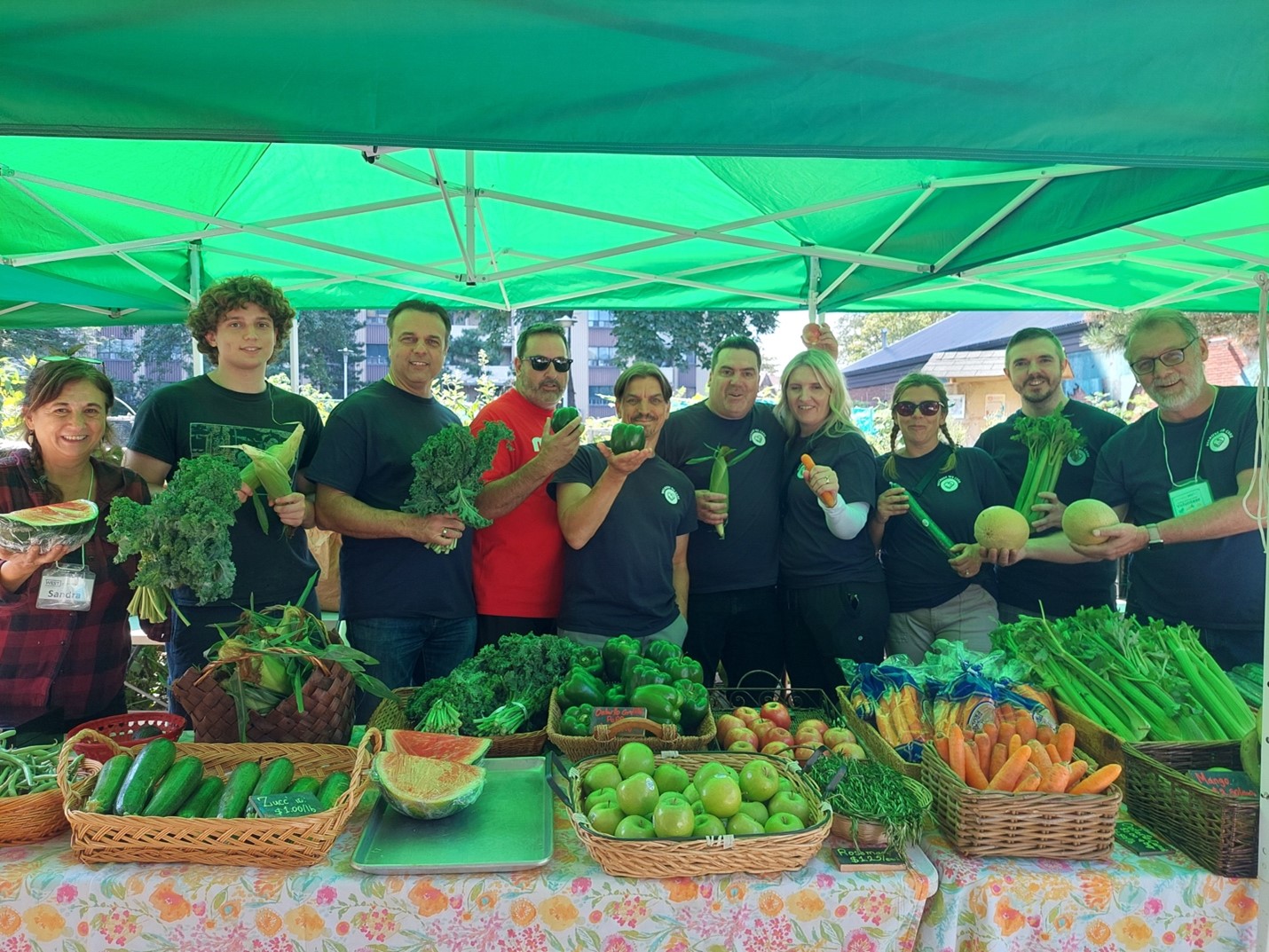
Volunteers have been instrumental in supporting the Greenest City Program at West Neighbourhood House, which aims to build healthy, inclusive neighbourhoods through place-based climate action. The Greenest City Program focuses on collective care for the earth and each other, building resilient communities in response to climate change.
Throughout the summer, volunteers from CIBC, Metro, and Intact collaborated with Greenest City staff at the Parkdale Community Good Food Market, taking on various roles including market set-up.
Greenest City directly supports three communal gardens in South Parkdale: Hope Garden, Milky Way Garden, and Dunn Indigenous Garden in which families living on low-income and/or Indigenous participants grow food and indigenous medicines for personal use and ceremonies.
Volunteers from BMO supported the Dunn Indigenous Garden Revitalization in Parkdale by participating in clean-up, watering, weeding, and mulching. In September, a group from Intact visited the garden to perform maintenance and prepare for an Indigenous Potluck event.
Volunteers also contributed to the Milky Way Garden, with a team from Scotiabank handling the preparation, including general clean-up and mulching for the Fall Harvest Festival.
West Neighbourhood House expresses sincere gratitude to the United Way Greater Toronto and all the volunteers for their invaluable support and dedication to the community.
BMO Day of Impact Promotes Community-Building
through Volunteering
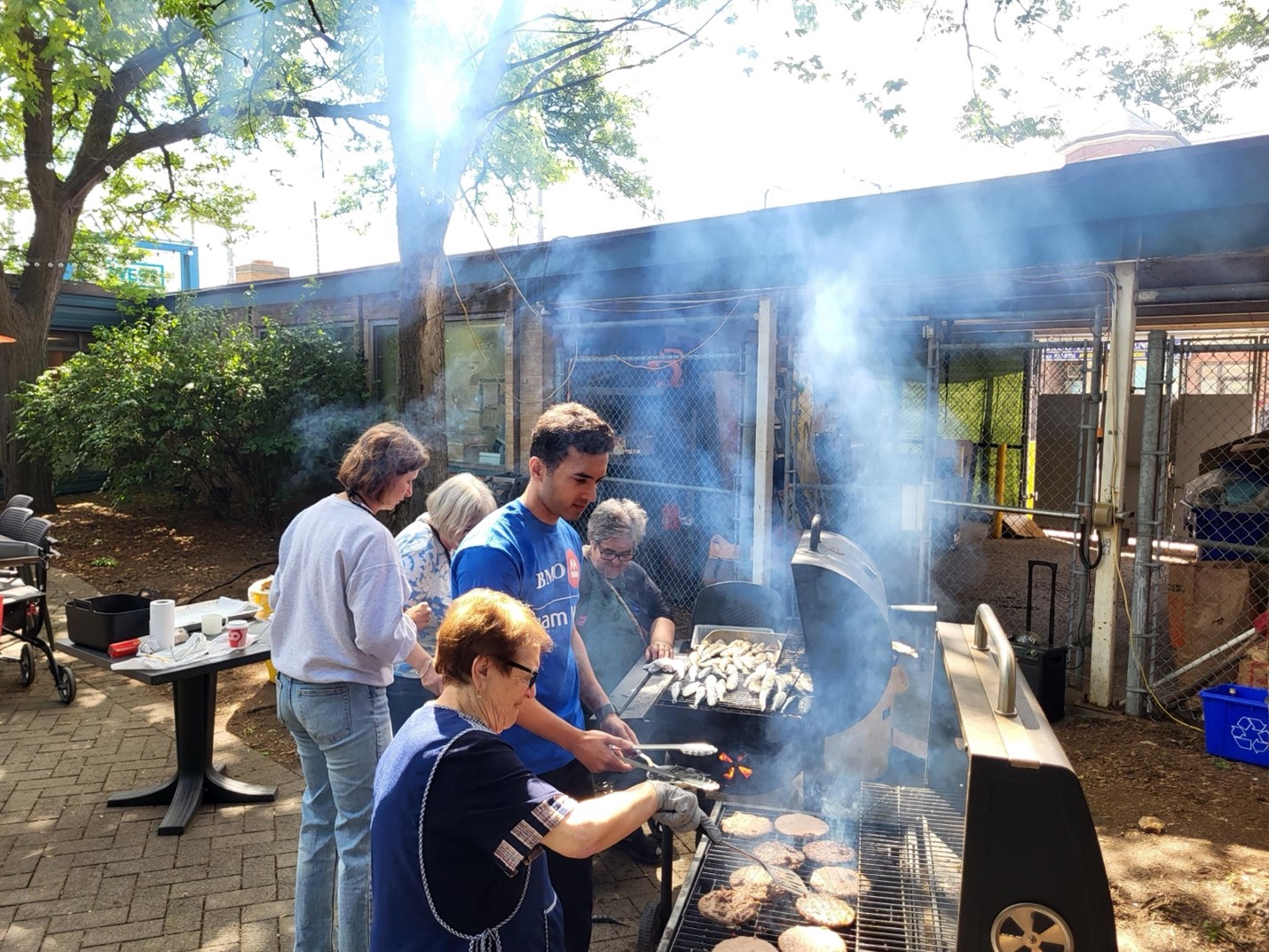
We extend our sincere gratitude to our partners at BMO for their participation in the Day of Impact events this summer. BMO volunteers contributed significantly to various activities throughout the season.
At the West Active Living and Learning Centre (WALLC) at West Neighbourhood House, BMO volunteers joined us for the summer BBQ at our 248 Ossington location courtyard. Organized by the Member’s Council, a group of senior community representatives, the volunteers collaborated with staff and participant volunteers to prepare and serve meals to seniors and assisted with event logistics.
BMO volunteers also engaged in a gardening project at the Dunn Indigenous Garden, in partnership with the Greenest City Program. They worked alongside staff and community members on tasks such as weeding, watering, adding new soil, planting pollinator species, and labeling plants and plots. Additionally, they learned about the environmental benefits of pollinators from community gardeners.
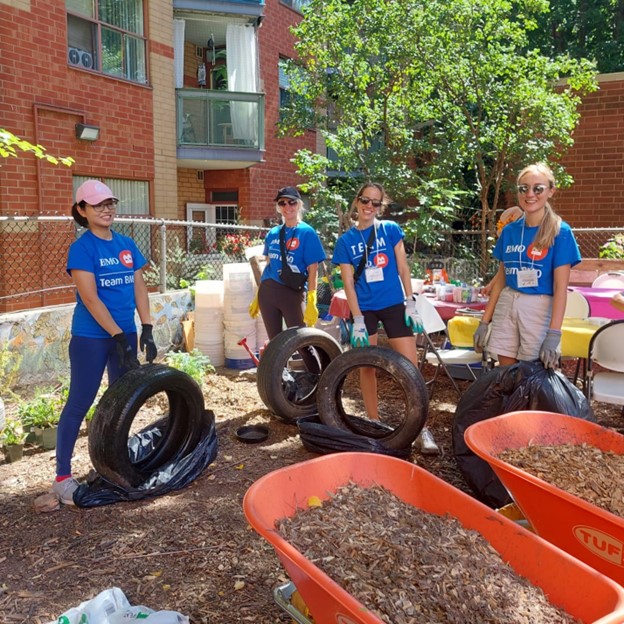
In the Meals on Wheels program, BMO volunteers supported daily meal deliveries, helping seniors and individuals with disabilities maintain their independence. They served as runners and drivers, delivering hot and frozen meals along planned routes and conducting safety checks to ensure the well-being of program participants.
In addition to their active participation, BMO made a financial contribution to West Neighbourhood House as part of their Day of Impact. We are grateful for BMO’s generous support and look forward to further strengthening our partnership.
West NH New Data Platform Tracks Outcomes of
Our Program Interventions
West Neighbourhood House collects a lot of data about what we do, especially about the outputs of programs. As an example, our Financial Empowerment program worked with 1,353 low-income people and recovered over $2.4 million in benefits and tax returns in the first 6 months of this year.
There are many variables and external factors that make it difficult to directly link our specific interventions to the outcomes experienced by our diverse program participants. Nonetheless West NH was inspired by our former staff, Jeff Klein, to create a data platform designed to track outcomes – starting with our financial coaching work. We enlisted partners to develop the Quality of Life data platform: Prosper Canada, EBO Financial Education Centre, Ontario Trillium Foundation, LogicalOutcomes, JP Morgan Chase Foundation and RBC Foundation.
We are curious about the longer-term impacts of our financial coaching: Are the program participants benefitting (or not) in other ways from being part of this program e.g. with their credit scores, debt repayment, financial goals? Does our financial empowerment work reduce the stress experienced by low-income people and does that in turn affect their health/wellness? (In the USA, a similar data platform gave participants blood pressure machines at home and saw a significant decrease in high blood pressure as their financial stressors were reduced.)
In addition to ongoing check-ins with participants, our Financial Coaches collect data through an online survey to determine the progress on the participant’s financial goals and the impact, on the individual’s well-being. So far there are 382 low-income young adults and adults on the Quality-of-Life platform. It is too early to draw conclusions about long-term outcomes, but this is a good start to collecting outcome data. We continue to work on improving the data platform so that program participants can input and view their own data themselves.
The Quality of Life data platform is designed to be customizable for different programs and interventions beyond financial empowerment. It is also designed to be cost effective for smaller organizations. We hope that it can become a useful tool across the community social services sector, building an evidence base about the outcomes and impacts of our sector’s work.
Transforming Arts Programming at the House
The House has always recognized the importance of the arts, particularly performing arts, in fostering community-building. We believe in the power of art to tell stories, inspire change, and drive progress within our communities.
Since 1930, our Music School has been the cornerstone of our community arts programming, offering music lessons to over 100 children weekly, taught by professional music teachers.
Recitals were a cherished tradition, filling our Community Hall with families and local music enthusiasts.
However, due to a significant decline in children’s music lesson enrollment, our Music School model required renewal. In 2023, West NH paused the program to explore community interests and viable alternatives for offering performing arts at the House
In December 2023, West Neighbourhood House partnered with Another Axis Consulting to engage with the local performing arts community, families, and other groups in downtown west Toronto. This consultation provided valuable insights, allowing us to reimagine arts access in our neighbourhood spaces. Many neighbours emphasized the importance of arts access, highlighting the need for arts access that reflects diverse cultural traditions.
Respondents identified an array of arts programming relevant to our communities, with a particular emphasis on dance-related activities. Suggestions also included a community choir, filmmaking, and crafts. The consultation reaffirmed the crucial role of the arts in providing support, healing, and connection – contributing to stronger communities, especially during challenging and divisive times.
We are redefining our role as a hub that connects families to more creative ways of experiencing diverse artistic and cultural practices. Additionally, we aim to leverage the expertise of the local creative community to identify opportunities for collective investments in arts-based services, products, and resources.
If you are interested in increasing access to the arts, stay tuned for our Community Design Jam later this winter. Join us in shaping equitable and inclusive arts participation that fosters social change, community-building, and dialogue.
Meals on Wheels Volunteers Support Members in the Community to Live Independently in their own Homes
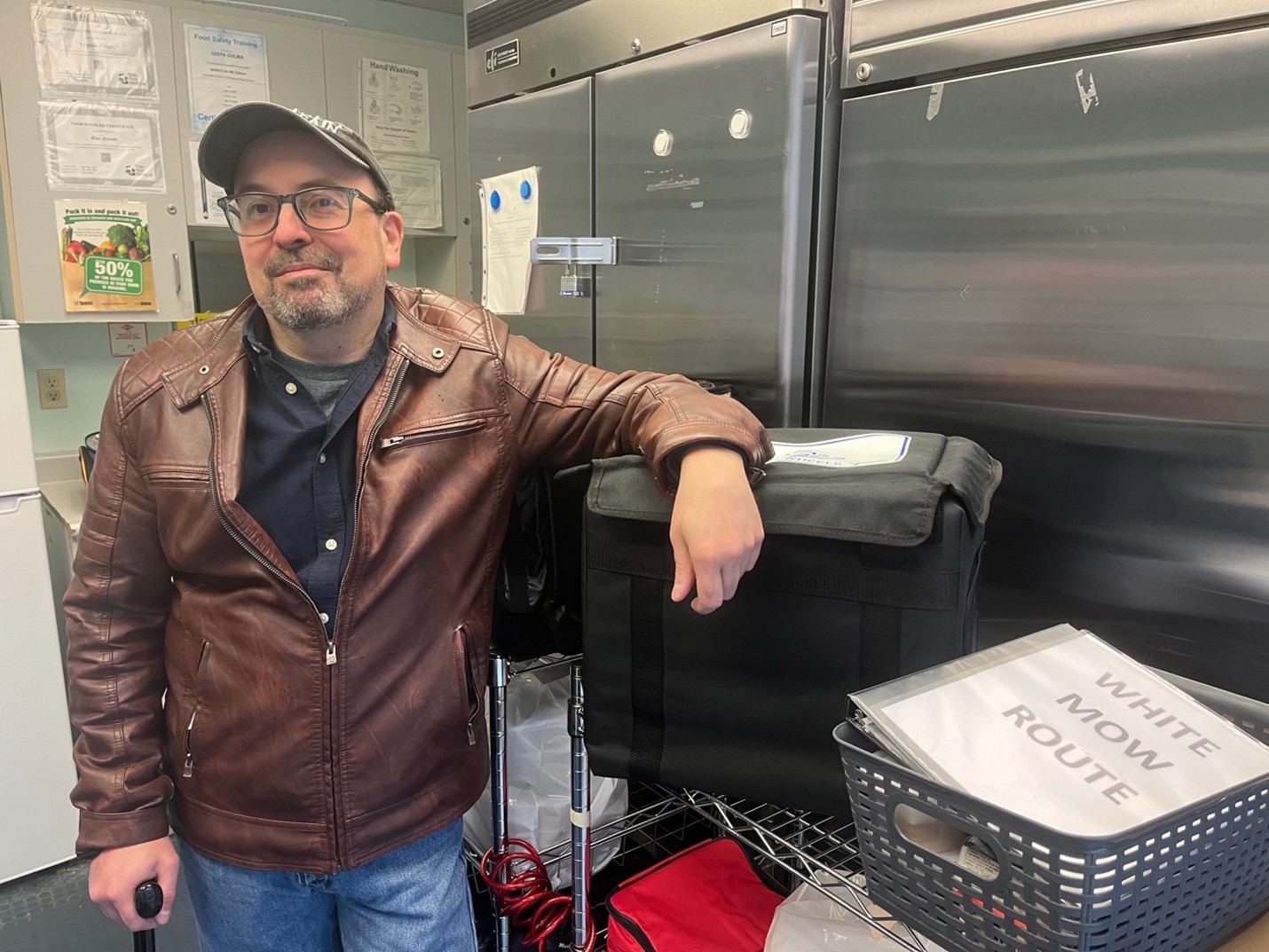
West Neighbourhood House is deeply grateful to our volunteers who dedicate their time and expertise to supporting the community. This month, we would like to highlight Frank and Ruth, who generously give their time to delivering meals for the Meals on Wheels program.
The Meals on Wheels program at the House relies on volunteers to deliver healthy meals to community members. Runners, in partnership with a driver, and cyclists, deliver hot and frozen packaged meals along a planned route directly to the homes of program participants.
Frank has been a volunteer runner with Meals on Wheels since 2015. “I heard about Meals on Wheels. I thought that was great, being in the community service work and seeing people on a regular basis,” he says.
“Personally, volunteering checks a few boxes for me. I love helping people. It’s close to where I live too. It allows me to do what I love doing.”
“I love people. I love working with people. I love helping people. I’m a helper,” he says.
Volunteers engage in conversation with the participant to help ensure they are safe and well. “I learn about how their day is going. And, how they feel about the service. Seeing how they look in the picture.”
Frank says he has developed a connection with some of the participants over time, who have become used to him knocking on their door. “I have had clients the first time I came, just opened their doors a bit, just enough for me to hand over the food. Eventually, they swing their doors open and ask how I am doing.”
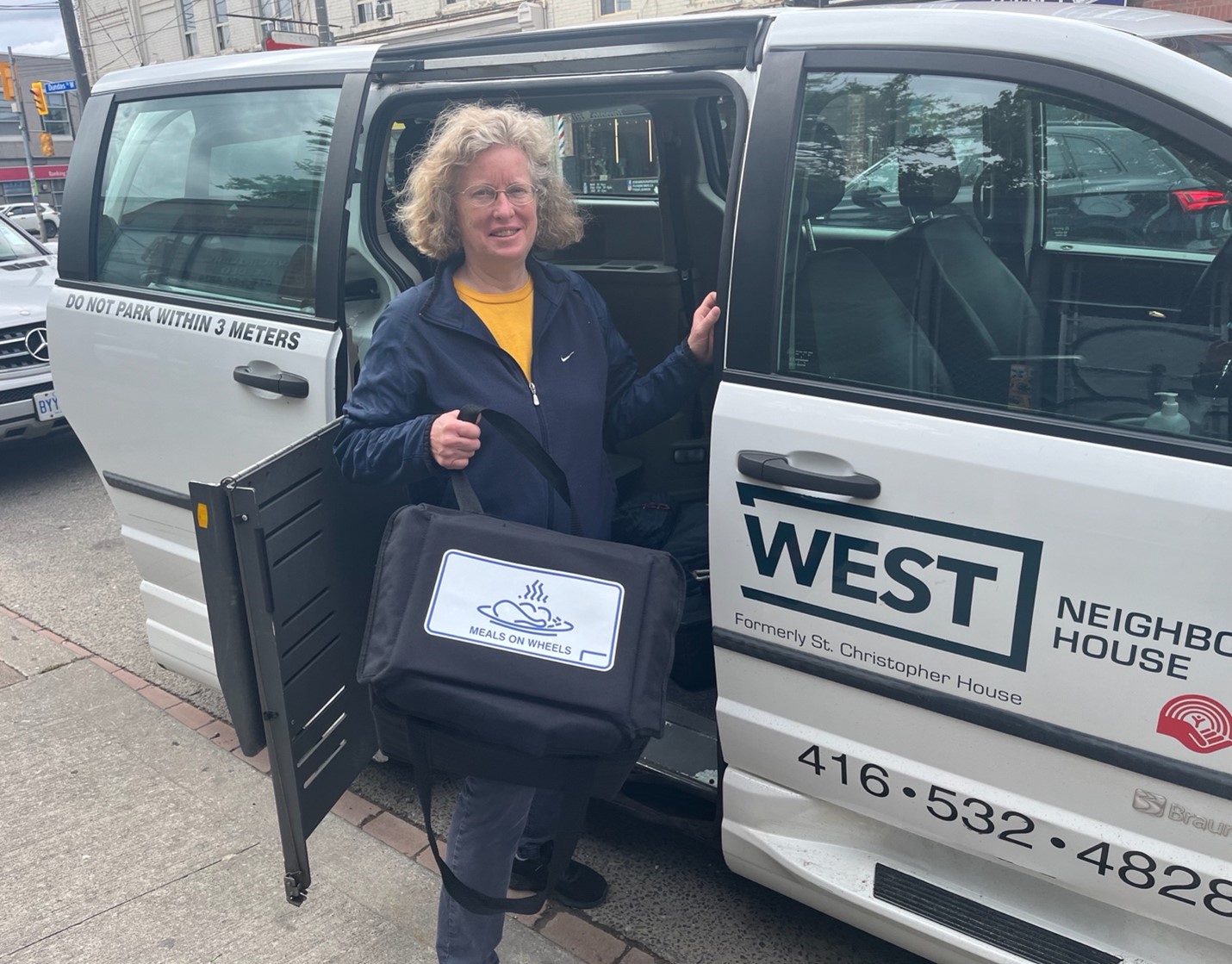
Promoting Active Living and Supporting Seniors Age in Place
At Meals on Wheels, we are dedicated to promoting active living and helping seniors age in place by providing essential services and fostering community connections.
As most of the participants are seniors or those living with disabilities, the Meals on Wheels program provides healthy meals directly to their front door six days a week. This service helps clients live independently in their own homes for as long as possible while also promoting connection, reducing social isolation, and encouraging active living.
Ruth, a dedicated volunteer runner for five years, also occasionally delivers meals as a cyclist. She believes that volunteering for Meals on Wheels is about more than just delivering meals. “The most important thing is making sure people who are isolated get help,” she says.
Ruth shared a touching story about a bedridden woman who is very isolated. “We deliver frozen meals to her since she doesn’t have any family around,” Ruth explains. “Some clients are more vulnerable, so you want to take the time and get to know them a little more,” she says.
There are individuals in the community that require a higher level of care. “It feels good to hand out healthy meals. It’s nice to feel useful”, Ruth shares.
“You are also the eyes and ears of the community. Putting on a friendly face is important because for some people, you might be the only person they see the whole day. When you are a volunteer, people know that you are doing it from the heart.”
We are incredibly grateful for volunteers like Frank and Ruth, whose continued support makes a significant difference in our community.
The Meals on Wheels program is currently looking for more volunteers. If you are interested in becoming a driver or runner, please visit our volunteer page for more information and to apply.
The Visiting, Social and Safety program is also looking for volunteers for friendly visiting. Volunteers provide friendly connection and support through regular interactions, either in person or over the phone. For a full description of the position, please visit our website.
Stay in Touch!
There’s one more great — and totally free! — way you can help strengthen our community: Forward this email to someone you know who might be interested in the work of the House. Anyone can sign up to receive our emails by visiting: westnh.org/newsletter.
And, don’t forget to follow us on Facebook, Instagram and Twitter.
